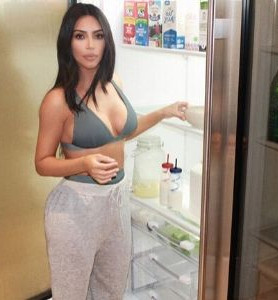Ben Warren's top tips for gut health this winter
In the modern day, we’ve seen our fair share of so-called ‘miracle superfoods’ hit the shelves. Whether it’s kombucha, coconut yoghurt and kimchi they all claim to have the same power – restoring and improving your gut health. First tips first; although these all possess qualities that attribute to overall gut health, you have to start with knowing how to nurture your gut – and this starts with your microbiome.
What is that vaguely familiar word you ask? Well, the microbiome is the living community of microbes in your gut. This doesn’t just mean beneficial bacteria. It’s comprised of both beneficial and non-beneficial bacteria and their balance is crucial in the proper digestion of your food and your overall health and wellness. It’s optimal to be in favour of the beneficial bacteria, as they protect us from pathogenic species of bacteria, digest the nutrition in our food and even make some for us.
We’re loving the health buzz around food and nutrition recently but if you’re not entirely sure about any of the above, if you want to discover how to fully benefit from your healthy eating or are just curious about nutrition, then read on. Below, we have the answers for some of the most burning questions around prebiotics and probiotics, and why they’re a need to know. Even better, they're brought to you from leading clinical nutritionist and Clinical Director of BePure, Ben Warren.
What are prebiotics and probiotics and how do they work?
Probiotics, specifically, refer to beneficial bacteria, while prebiotics are the foods that feed the beneficial bacteria living in our intestines. Our gut hosts both non-beneficial and beneficial bacteria and the foods we eat feed both the good and the bad. This is why you first need to ensure you are hosting the right bacteria in your gut and secondly, feed them the right foods to survive. It’s definitely a process!
What foods can you add in that are prebiotic?
- Garlic (raw)
- Onions (raw)
- Artichoke
- Sweetcorn
- Watermelon
- Nectarines
- Millet
- Cashews
However, the powerhouse of prebiotics are legumes;
- Lentils
- Beans
- Chickpeas
This isn’t all, you can research numerous prebiotic foods for specific dietary needs! It is important to note that as your body adapts to a prebiotic rich diet, there can be some side effects such excess gas until it has adjusted itself!
Why do we need to add probiotics as well?
The promotion of diverse beneficial gut bacteria with a quality daily probiotic is important for supporting optimal digestion, nutrient absorption and ultimately our health and energy status. The modern diet and environment have taken its toll on the level of nutrients in the food that we produce. With added toxins, stress levels and an increase in severely processed foods, it’s proving to impact our microbiome in a negative way.
Sugar is the main culprit that adds to the imbalance of bacteria in the modern diet. Non-Beneficial bacteria feed on sugar and allow pathogen strains of yeast to overgrow. Even modern medicine such as antibiotics, which are of course very necessary at times, can take its toll on our microbiome. This is why it can be incredibly beneficial to add probiotics into your diet to compensate this imbalance and support your beneficial bacteria to thrive.
How can you add more probiotics into your diet?
Fermented foods can help restore the correct balance and diversity of beneficial bacteria into your gut. Here are a few ideas you can try:
- Sauerkraut
- Kefir
- Kombucha
- Yoghurt with live cultures
- Kimchi
Or, if you’re looking for a quick and easy way to improve your beneficial gut bacteria, try adding in a probiotic supplement to your daily routine. Probiotic products are fantastic in the diversity of bacteria they provide you in one go. A great place to start is with the BePure Gut Renew Probiotic. This daily probiotic has been specially formulated by Ben Warren to provide your body with 18 strains of beneficial bacteria and a minimum of 30 billion viable bacteria per serving to promote optimal gut health.
In summary, to ensure you get the most out of your healthy lifestyle, you first have to make sure you have the nutritional support and balance of bacteria in your gut to set your digestive system up right. It’s a highly synergistic relationship, if you provide the right home (your gut) and resources (prebiotics) for the bacteria (probiotics), then it will, in turn, support your overall health!
For more on digestive health, head to the BePure website here.





